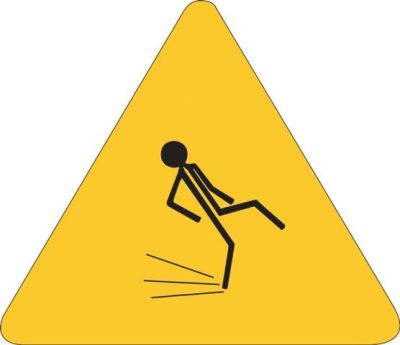Falls: An Elder Care Turning Point
Our very own Carolyn Northrop, Client Care Advocate, was interviewed recently by Gayla Zoz for a Life Care Planning Law Firms Association blog article on fall prevention. We thought you might enjoy reading the article as well.
Each year, National Falls Prevention Day is observed on the autumn equinox, the official first day of fall. If you’re looking after elderly relatives, now is a good time to take stock of the fall risk your loved ones may be facing now.
Carolyn Northrop deals with this every day. As Client Care Advocate at Strohschein Law Group, a Life Care Planning Law Firm in St. Charles, Illinois, Carolyn is also certified as a Senior Home Safety Specialist. She knows a thing or two about dangers associated with falls, and she offers up some startling statistics.
• One in three adults over the age of 65 falls every year.
• Half of those who fall are over 80.
• Falls are the leading cause of death due to injury for those over the age of 65.
• Falls account for 25% of all hospital admissions.
• Falls account for 40% of all nursing home admissions.
• 50% of people who survive a fall never regain their independence again.
A fall often represents a fork in the road for older adults, especially because the fall creates so much collateral damage. “They’ll fall and hit their head or break a hip and it becomes a long, slow decline from that point on,” Carolyn says. “That’s why it’s so important to be vigilant about preventing a fall from ever happening in the first place.”
What can older adults and their caregivers do to lessen the chance debilitating falls? Carolyn offers five suggestions.
Get Regular Exercise
Carolyn sees physical weakness as an underlying cause of many falls. The antidote: movement. “Many older adults spend most of their days sitting, which results in muscle weakness,” notes Carolyn. “When they do get up, they’re not as strong, which puts them at greater risk of falling.” Carolyn recommends that seniors maintain some form of exercise every day. “The more you use your muscles, the stronger you’ll be, which will reduce the risk of falls.”
Review Medications
Keeping tabs on an older adult’s medications is an important but often overlooked fall prevention strategy. “Older adults who take drugs that aren’t well regulated are more likely to fall,” Carolyn cautions. “It’s easy to lose balance if you feel like you’re in a fog because of the interactions of drugs in the body.”
Check Vision Annually
This tip may seem obvious. After all, if you can’t see where you’re going, you’re more likely to trip and fall. “It may be tempting to put off those annual trips to the eye doctor, but it’s vital to keep those appointments,” Carolyn stresses. “Vision often worsens more quickly for older people than it does for the young.”
Remove Safety Hazards in the Home
Poor lighting, clutter, and trip hazards are just a few of the many dangers lurking in a typical older adult’s home. “The first step is to go in and see how many potential hazards you can find,” Carolyn advises. “Remove rugs. Make sure there’s adequate lighting. Make sure paths are cleared. Install assistive devices, such as grab bars in the bathroom.”
Wear the Right Shoes
Carolyn notes that improper footwear is a major cause of many falls. “People often trip because they’re walking around in slippery socks or the wrong size shoes,” she adds. “What you put on your feet might make the difference between living out your years independently or spending them in a nursing home.”
To learn more about fall prevention, contact a certified elder law attorney(*), such as Linda Strohschein and her team at Strohschein Law Group. To set up an appointment, contact Strohschein Law Group at 630-377-3241.
This information provided by Strohschein Law Group is general in nature and is not intended to be legal advice, nor does it constitute a legal relationship. Please consult an attorney for advice regarding your individual situation.
(*) The Supreme Court of Illinois does not recognize certifications of specialties in the practice of law and the CELA designation is not a requirement to practice law in Illinois.

